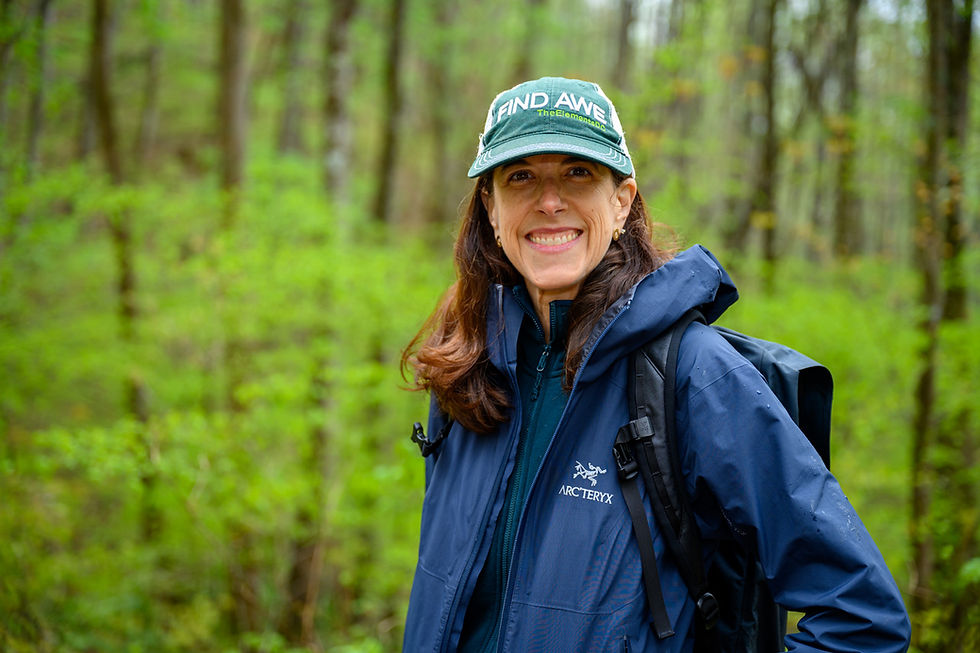Finding Quiet Can Be Elusive, Even in Nature
- hikingresearch
- Apr 8, 2015
- 2 min read
By Mark A. Ellison, Ed.D.
Perhaps you noticed that we live in a noisy world. Maybe it is the constant hum of traffic, or the construction near your office, or the neighbors that are constantly using lawn equipment. It is difficult to escape. Over half the world’s population now lives in urban settings, making it extremely difficult to find quiet if you live in these settings. Even in rural areas, finding places free of human created noise is not easy.

The National Park Service recently created a map that indicates that many people live in areas where night skies and soundscapes are very degraded. The blue areas of the map below indicate places where noise is less prevalent. Unfortunately, most of the eastern United States is brightly colored indicating significant noise and light pollution. The park service also found that even in more natural backcountry settings noise is prevalent due to hikers, maintenance equipment and other sources. Excessive noise is harmful not only to human health, but to wildlife as well. Certain species of animals avoid noisy places.

Fortunately there are places such as the “One Square Inch” project in Olympic National Park that are treated as sanctuaries for silence, to experience the quiet of nature, and used to help build awareness of the need for more areas like it.
A number of research studies have linked excessive noise with increased levels of violence and crime. Humans need to experience some levels of quiet and solitude to remain healthy. Nature provides a primary escape for this. However, if the dwindling areas of nature are not protected, there will no more places offering this type of escape.
Many of us struggle to hear our “inner voice”, to live a balanced life, and to take time to reflect. The Cherokee have a term for living life in balance, duyuktv. Take time to find a quiet natural area nearby and soak in some of the restorative power of nature, to find a sense of balance, of duyuktv. Once you have captured that restoration, share it with others. Then, work together to help protect the natural areas where you live and explore.








Comments